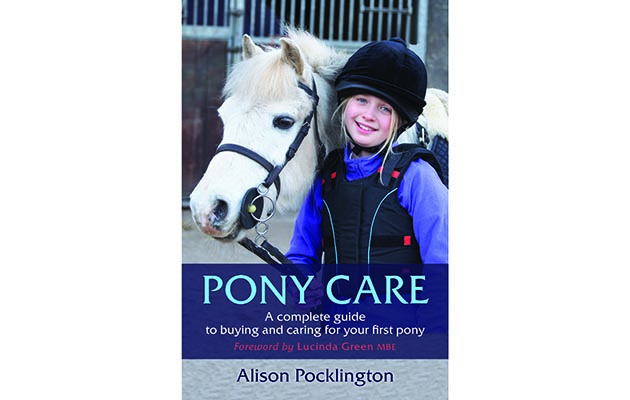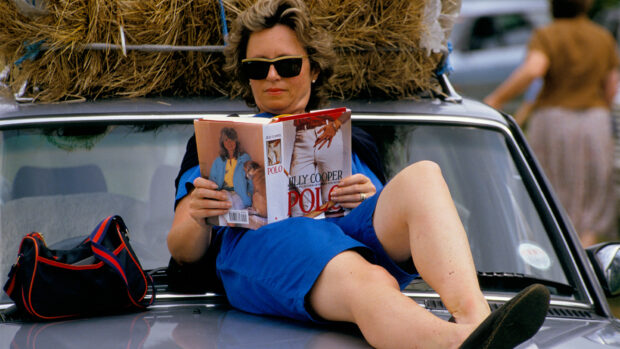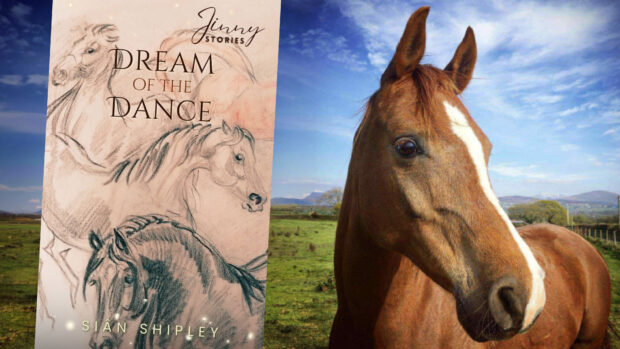In her new book Pony care: A complete guide to buying and caring for your first pony, Alison Pocklington looks at what you need to consider before taking the plunge and buying a pony for your child
Choosing the right time to buy a pony is difficult and will very much depend on the parents’ knowledge and experience or that of a friend or instructor who might be willing to help.
A child who comes from a horsey background will often have had a pony bought for them at a very early age, or sometimes even before they are born! This is fine when the parents themselves have the experience of riding and looking after horses. In this situation, the horses and ponies usually live at home and the child grows up watching the parents. This does not apply for a child who has learned to ride at the local riding school once or twice a week. Here are some questions to consider and advice on gaining the necessary information and knowledge before buying a pony.
What level of rider should the child be?
When coming from a non-horsey background, I would not advise buying until the child is riding quite competently off the lead rein. This is because a young child being led around is often quite happy and confident, but that can often change when the lead rein comes off.
The best place to make this transition is at a riding school in an enclosed area with a qualified instructor, not in the middle of a big field or going down the road with an inexperienced mummy or daddy. A riding school pony tends to know his job and will help the child develop the skills required to ride off the lead rein. This may not be so easily done riding a pony alone. The child needs to be confident enough that they are not relying on parents to be holding on every stride. A nervous child will often result in a nervous parent, the two combined can cause the pony to become unsettled. This could very quickly result in the child losing confidence and deciding they do not want to ride anymore.
Therefore, I would advise that the child is happy to walk, trot and canter in the arena and an open space on a well-behaved pony before purchasing.
Does the child always want to ride?
Consider in the last two years how often your child has ridden. Have there been periods when he or she has ‘gone off riding’ and decided that they want to have a break. Are they put off in winter when it’s cold and wet? Would they sometimes rather give it a miss because they are tired or their friends are doing something more exciting? If this is the case, then owning a pony is not for you and it is much better to continue riding weekly at the riding school where the twenty-four-hour and seven-day-week commitment is not necessary.
What other hobbies does the child have?
If your child is involved in lots of other sports and hobbies it may not be the right decision to look into owning. Younger children tend to follow what they are good at. If they are particularly sporty or interested in dance or drama, you may find that you are spending a lot of money on a pony that only gets ridden twice a week due to other activities. If this is the case, it makes more sense to save money and continue to ride at the riding school.
School days
Consider the amount of time your child has on a school day. As they get older, the pressure of school work increases. Being able to ride after school becomes more challenging during the winter months as daylight hours are shorter, unless you are fortunate enough to have access to an indoor or floodlit arena.
Time of year
When deciding to buy a pony, the time of year should be taken into consideration. At the end of autumn, ponies can often be bought cheaper. Many people will not want to keep a pony whose rider has lost interest, or one that has been outgrown, throughout the winter months.
The cost of keeping a pony can increase during these months as it is often necessary to stable and feed. While buying can be cheaper, it has the disadvantages of costs and short, cold winter days to look after him and ride. This can very quickly put your child off. If a pony is going to misbehave it is more likely to do so when stabled more and the weather is colder.
Buying in spring and summer may mean the pony costs a little more but the new experience of becoming an owner will be much more pleasurable in better weather conditions and longer daylight hours. The start of the summer holidays is ideal as there will be plenty of time for the child to ride and get to know their new pony.
Friends with ponies
The thought of owning a pony is very exciting – in reality, it is also hard work. Children are less likely to find it a chore if they are around friends who also have ponies. The mucking out, grooming and other activities can become fun, even on a cold winter’s evening. More often than not, it is when children reach their teenage years that they give up riding if they don’t have friends sharing this mutual interest.
Article continues below…
You might also be interested in:

6 reasons children should learn to ride (in case anyone needs persuading)
Are you desperate for your children to learn to ride, but your partner's not so sure? Here are six reasons

‘A good one is priceless’: what makes a perfect first pony?
Stable management
Knowledge and experience in caring for a pony is more important than the level of riding. The perfect pony can soon become a nightmare if managed incorrectly. The child who rides weekly at a riding school may often have a pony handed to them that is groomed, tacked up and ready to go. After the lesson the pony is then taken away to be dealt with. This is often the case as it is easier for the riding school to have experienced staff do the job than to supervise half a dozen children running around trying to tack up ponies.
Health and safety has a huge influence on what yards will allow clients to do with horses and ponies. Unfortunately, this system does not help your child learn and gain experience. There are numerous books and DVDs to help with learning about stable management, but putting this into practice is not so easy and should initially be done under supervision.
More accidents occur on the stable yard than in the arena; even the smallest pony is capable of causing severe injuries to a child or adult if care is not taken.
It is therefore essential that both child and parents gain some experience before buying. This can be done in a number of ways. Some riding schools may offer ‘pony days’ or even ‘pony camp’. This is where the child is given the opportunity to spend the day with a pony and, along with riding lessons, they will carry out all the tasks required to care for a pony on a daily basis. It may also include some formal lectures on feeding, shoeing and health issues.
If the riding school does not offer this in a group situation, it is worth asking if something can be booked in privately.
Some equine colleges or British Horse Society (BHS) training yards may offer stable management courses.
These are more suited to adults and teenagers.Contact the local Pony Club or Riding Club to see if they have any pony days or training days. They may also be able to put you in contact with a freelance instructor who could offer some training.
Tell your riding instructor that you are considering buying a pony and ask if it would be possible to spend some time at the stables, watching and helping. This used to be very common and one of the best ways of gaining experience. Unfortunately, due to health and safety regulations, many establishments are now wary of doing this because of the amount of supervision required.
Having a friend who already has a pony is ideal. Spending time watching and helping is lots of fun and educational. It is also advisable for the parents to be involved.
Another option is to look for a yard that offers full livery. The pony will be cared for by experienced staff that are usually happy for you to be involved. This is a great way to learn and get supervised hands-on experience until you are confident to look after the pony by yourself.
Pony Care: A complete guide to buying and caring for your first pony by Alison Pocklington
Price: £16.95
Visit: quillerpublishing.com

For all the latest equestrian news and reports, don’t miss Horse & Hound magazine, out every Thursday



